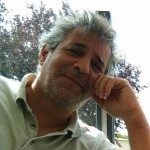Link to Pubmed [PMID] – 20333354
Intensive Care Med 2010 Aug;36(8):1318-26
BACKGROUND: The pathogenesis of intensive care unit-acquired paresis (ICUAP), a frequent and severe complication of critical illness, is poorly understood. Since ICUAP has been associated with female gender in some studies, we hypothesized that hormonal dysfunction might contribute to ICUAP.
OBJECTIVE: To determine the relationship between hormonal status, ICUAP and mortality in patients with protracted critical illness.
DESIGN: Prospective observational study.
SETTING: Four medical and surgical ICUs.
PATIENTS: ICU patients mechanically ventilated for >7 days.
INTERVENTIONS: None.
MEASUREMENTS AND MAIN RESULTS: Plasma levels of insulin growth factor-1 (IgF1), prolactin, thyroid stimulating hormone (TSH), follicular stimulating hormone (FSH), luteinizing hormone (LH), estradiol, progesterone, testosterone, dehydroepiandrosterone (DHEA), dehydroepiandrosterone sulphate (DHEAS) and cortisol were measured on the first day patients were awake (day 1). Mean blood glucose from admission to day 1 was calculated. ICUAP was defined as Medical Research Council sum score <48/60 on day 7.
RESULTS: We studied 102 patients (65 men and 37 women, 29 post-menopausal), of whom 24 (24%) died during hospitalization. Among the 86 patients tested at day 7, 39 (49%) had ICUAP, which was more frequent in women (63% versus men 36%, p = 0.02). Mean blood glucose was higher in patients with ICUAP. Estradiol/testosterone ratio was greater in men with ICUAP.
CONCLUSION: ICUAP 7 days after awakening was associated with increased blood glucose and with biological evidence of hypogonadism in men, while an association with hormonal dysfunction was not detected in women.

